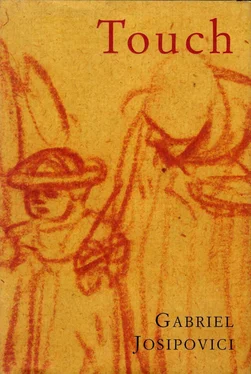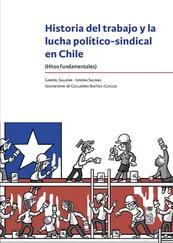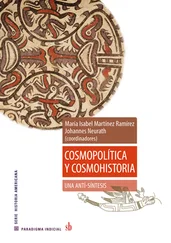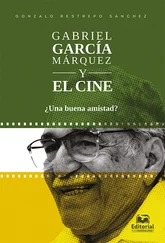Gabriel Josipovici - Touch
Здесь есть возможность читать онлайн «Gabriel Josipovici - Touch» весь текст электронной книги совершенно бесплатно (целиком полную версию без сокращений). В некоторых случаях можно слушать аудио, скачать через торрент в формате fb2 и присутствует краткое содержание. Год выпуска: 1996, ISBN: 1996, Издательство: Yale University Press, Жанр: Современная проза, на английском языке. Описание произведения, (предисловие) а так же отзывы посетителей доступны на портале библиотеки ЛибКат.
- Название:Touch
- Автор:
- Издательство:Yale University Press
- Жанр:
- Год:1996
- ISBN:0300066902
- Рейтинг книги:5 / 5. Голосов: 1
-
Избранное:Добавить в избранное
- Отзывы:
-
Ваша оценка:
- 100
- 1
- 2
- 3
- 4
- 5
Touch: краткое содержание, описание и аннотация
Предлагаем к чтению аннотацию, описание, краткое содержание или предисловие (зависит от того, что написал сам автор книги «Touch»). Если вы не нашли необходимую информацию о книге — напишите в комментариях, мы постараемся отыскать её.
Touch — читать онлайн бесплатно полную книгу (весь текст) целиком
Ниже представлен текст книги, разбитый по страницам. Система сохранения места последней прочитанной страницы, позволяет с удобством читать онлайн бесплатно книгу «Touch», без необходимости каждый раз заново искать на чём Вы остановились. Поставьте закладку, и сможете в любой момент перейти на страницу, на которой закончили чтение.
Интервал:
Закладка:
The world for Marcel before that night was a world of happy iteration. Days went by, each new and exciting precisely because it did not threaten to be in any essential way different from all the others. Because it was a world grounded in trust it was a world suffused with aura, a world of reciprocity, in which what you looked at looked back at you. After that night it is as if Marcel had been projected violently into time and change, desire and frustration. What had simply been life had suddenly become a drama, a story, his story. That is why the details of that fateful night constitute his first clear memory, and that is why this is where the novel proper starts. Not just this novel, of course, but the novel as a form, a way of making sense of experience. The novel, this novel suggests, is always in search of a lost paradise, of the paradisal state which existed before it was propelled into existence, and it will not rest till that state is found again.
But this novel is a little different. After all, it does not start with the mother's withholding of her goodnight kiss, but earlier and elsewhere. And when iteration gives way to linearity Marcel finds that he has fallen (so to speak) into his life, that unique life which can only be his and no one else's; but also that, in a curious secular echo of the myth of the Fortunate Fall, his sense of loss is precisely what drives him and enables him to write; and writing, he will discover, many thousands of pages later, is what will allow him to overcome, at least partially, the trauma of that night, to draw the scattered pieces of himself into a whole, even as he recognises that such wholeness is only a dream of wholeness, something he can reach out for and touch but never actually grasp.
5 The Room
When, in a room by ourselves, we hold one hand in the other, we do not call that ‘holding hands’. When, in a room by ourselves, we reach out towards our hand in a mirror and meet only the coldness of the glass, we do not call that touching. On the contrary, both are a sour parody of touch, born of and fuelling our sense of dejection, the sense of existing in a world which remains stonily indifferent to our needs and desires.
Yet there is, of course, one kind of solitary touching which does seem to bring one back into the world or bring the world back to one, and it is hardly surprising that it is Proust, once again, who has explored this with the greatest acumen and tact. It is just after Marcel has discovered to his sorrow that ‘identical emotions do not spring up simultaneously in the hearts of all men in accordance with a pre-established order’, that he recounts how ‘[s]ometimes to the exhilaration which I derived from being alone would be added an alternative feeling which I was unable to distinguish clearly from it, a feeling stimulated by the desire to see appear before my eyes a peasant-girl whom I might clasp in my arms’. Pursuing this memory he comes to understand that the woman he thus desires to hold in his arms, if she was in some sense brought into being by the woods and meadows through which he wandered daily, was also, in a sense, the incarnation of those woods and meadows, a single living being through whom he might possess the entire landscape. ‘For at that time’, he says, ‘everything that was not myself, the earth and the creatures upon it, seemed to me more precious, more important, endowed with a more real existence than they appear to full-grown men.’ In desiring a woman one does not then, as in later life, think of the pleasure she will give us, ‘for one does not think of oneself, but only of escaping from oneself [car on ne pense pas à soi, on ne pense qu'à sortir de soi]’.
Soi , oneself, is the self when it feels dead, cut off from the source of life, even though for the young Marcel this is more an itch of the body than a conscious attitude, as it was for Wordsworth and Coleridge in their moods of dejection. It is the condition of knowing that one is alive but not being able to feel it, of feeling rather that there is life but it is elsewhere and that one is somehow cut off from it. That vague unfocused longing, which feels as if it would be appeased by the touch of another is so frustrating precisely because it seems as though so little is required to bring it to fulfilment, yet that little is nothing less than everything. Marcel may long for the peasant-girl with every fibre of his being, but she does not appear. ‘Alas,’ he says,
it was in vain that I implored the castle-keep of Roussainville, that I begged it to send out to meet me some daughter of its village, appealing to it as to the sole confidant of my earliest desires when, at the top of our house in Combray, in the little room that smelt of orris-root, I could see nothing but its tower framed in the half-opened window as, with the heroic misgivings of a traveller setting out on a voyage of exploration or of a desperate wretch hesitating on the verge of self-destruction, faint with emotion, I explored, across the bounds of my own experience, an untrodden path which, for all I knew was deadly — until the moment when a natural train like that left by a snail smeared the leaves of the flowering currant that drooped around me.
Rarely have the dynamics of desire and addiction been better caught, not even in the classic accounts of alcoholism and drug addiction, such as Under the Volcano and William Burroughs' Junky . In the mirror I contemplate myself as nothing but surface, yet what I need if I am to come alive is for a path to open up that will lead me into myself and so back into the world. That is what drink seems to be able to do with the Consul in Lowry's novel, and that is what masturbation here seems to do for Marcel. But the conclusion of the episode provides us with the inevitable corollary: what seems to be a means of bringing us back into touch with the world, a particularly satisfying means, since we can control it ourselves and are not therefore dependent on the whims of others, turns out to alienate us ever more from the world as the means become an end in itself. ‘I ceased to think of those desires which came to me on my walks, but were never realised, as being shared by others, or as having any existence outside myself’, writes Proust. ‘They seemed to me now no more than the purely subjective, impotent, illusory creations of my temperament. They no longer had any connection with nature, with the world of real things, which from then onwards lost all its charm and significance.’
It is one of the few novels of the second half of our century which can vie with A la recherche in ambition and execution, La Vie mode d'emploi by Georges Perec, that provides us with the final gloomy metamorphosis of the solitary man in the room. In one of the shortest sections of the book a room and its contents are described in just two paragraphs, the first of which reads: ‘Today the room is occupied by a man of about thirty; he is on his bed, stark naked, prone, amidst five inflatable dolls, lying full length on top of one of them and cuddling two others in his arms, apparently experiencing an unparalleled orgasm on these precarious simulacra [semblant éprouver sur ces simulacres instables un orgasme hors pair].’
6 Addiction
Like a great many people I have been trying to give up smoking. In the process I have learned many things about myself and a little bit about the nature of addiction, but I have still not given up.
I know I am addicted because, whenever I try to imagine a life without cigarettes, without any cigarettes, ever , I realise it is a life I do not want.
In the early hours of the morning, when I cannot sleep and my throat is dry and my tongue feels too big for my mouth, I promise myself that I will pull myself together and stop the very next day. After all, I have quite a strong will, would, when young, push myself to get up at six in the mornings to get a bit of extra swimming or running training in when a big race was coming up, and later forced myself to work for exams in subjects in which I was not interested. Surely giving up something must be easier than forcing oneself to do something? But when the next day comes I do not stop. And the cigarettes I smoke in the course of the day are not an indulgence, like eating chocolates, say. They are a necessary part of my life. Without them — and I am not a great smoker, rarely consume more than eight or ten cigarettes a day — without them I simply do not feel alive.
Читать дальшеИнтервал:
Закладка:
Похожие книги на «Touch»
Представляем Вашему вниманию похожие книги на «Touch» списком для выбора. Мы отобрали схожую по названию и смыслу литературу в надежде предоставить читателям больше вариантов отыскать новые, интересные, ещё непрочитанные произведения.
Обсуждение, отзывы о книге «Touch» и просто собственные мнения читателей. Оставьте ваши комментарии, напишите, что Вы думаете о произведении, его смысле или главных героях. Укажите что конкретно понравилось, а что нет, и почему Вы так считаете.












